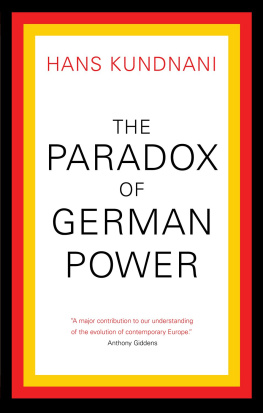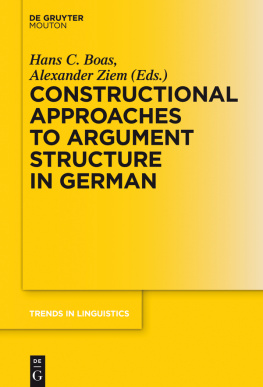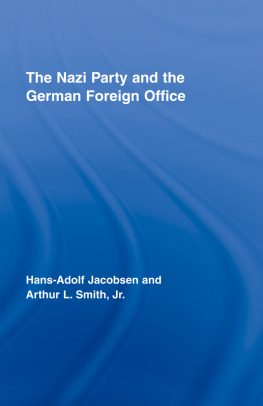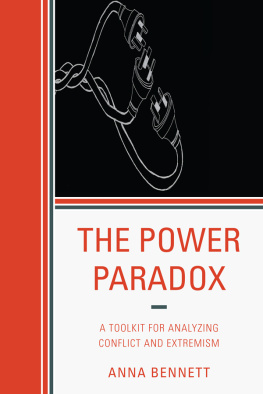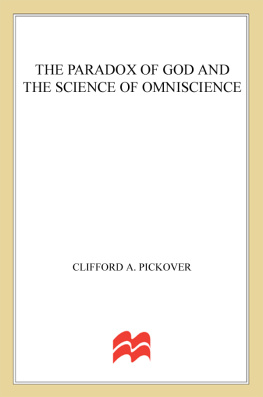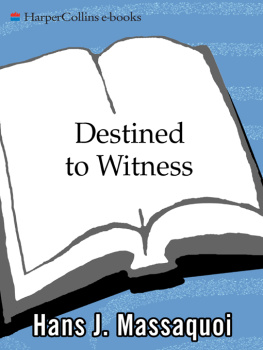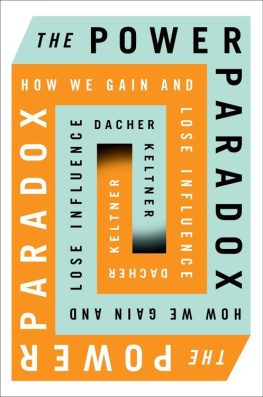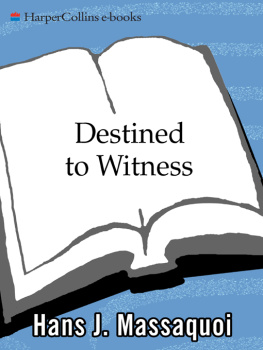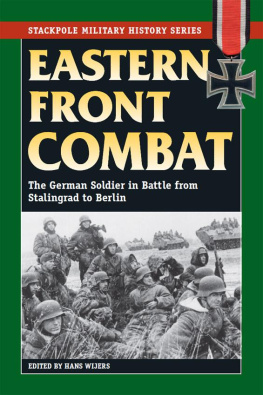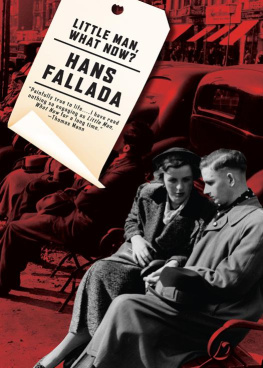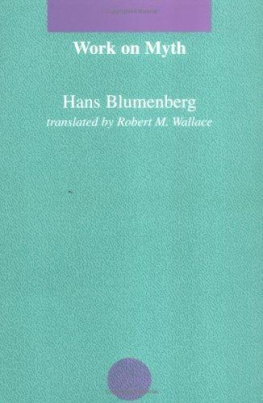Kundnani Hans - The Paradox of German Power
Here you can read online Kundnani Hans - The Paradox of German Power full text of the book (entire story) in english for free. Download pdf and epub, get meaning, cover and reviews about this ebook. year: 2014, publisher: Oxford University Press, Incorporated, genre: Politics. Description of the work, (preface) as well as reviews are available. Best literature library LitArk.com created for fans of good reading and offers a wide selection of genres:
Romance novel
Science fiction
Adventure
Detective
Science
History
Home and family
Prose
Art
Politics
Computer
Non-fiction
Religion
Business
Children
Humor
Choose a favorite category and find really read worthwhile books. Enjoy immersion in the world of imagination, feel the emotions of the characters or learn something new for yourself, make an fascinating discovery.
- Book:The Paradox of German Power
- Author:
- Publisher:Oxford University Press, Incorporated
- Genre:
- Year:2014
- Rating:3 / 5
- Favourites:Add to favourites
- Your mark:
- 60
- 1
- 2
- 3
- 4
- 5
The Paradox of German Power: summary, description and annotation
We offer to read an annotation, description, summary or preface (depends on what the author of the book "The Paradox of German Power" wrote himself). If you haven't found the necessary information about the book — write in the comments, we will try to find it.
The Paradox of German Power — read online for free the complete book (whole text) full work
Below is the text of the book, divided by pages. System saving the place of the last page read, allows you to conveniently read the book "The Paradox of German Power" online for free, without having to search again every time where you left off. Put a bookmark, and you can go to the page where you finished reading at any time.
Font size:
Interval:
Bookmark:


Oxford University Press is a department of the
University of Oxford. It furthers the Universitys objective
of excellence in research, scholarship, and education
by publishing worldwide.
Oxford New York Auckland Cape Town Dar es Salaam Hong Kong Karachi Kuala Lumpur Madrid Melbourne Mexico City Nairobi New Delhi Shanghai Taipei Toronto
With offices in Argentina Austria Brazil Chile Czech Republic France Greece Guatemala Hungary Italy Japan Poland Portugal Singapore South Korea Switzerland Thailand Turkey Ukraine Vietnam
Copyright 2015 Hans Kundnani
Oxford is a registered trade mark of Oxford University Press in the UK and certain other countries.
Published in the United States of America by
Oxford University Press
198 Madison Avenue, New York, NY 10016
Published in the United Kingdom in 2015 by C. Hurst & Co. (Publishers) Ltd.
www.oup.com
All rights reserved. No part of this publication may be reproduced, stored in a retrieval system, or transmitted, in any form or by any means, without the prior permission in writing of Oxford University Press, or as expressly permitted by law, by license, or under terms agreed with the appropriate reproduction rights organization. Inquiries concerning reproduction outside the scope of the above should be sent to the Rights Department, Oxford University Press, at the address above.
You must not circulate this work in any other form and you must impose this same condition on any acquirer.
Library of Congress Cataloging-in-Publication Data is available for this title Hans Kundnani
The Paradox of German Power
ISBN 9780190245504
ebook ISBN 9780190245528
1 3 5 7 9 8 6 4 2
Printed in the United States of America on acid-free paper
I wrote this short book while working at the European Council on Foreign Relations (ECFR), to which I am indebted for providing me with a uniquely stimulating environment and for introducing me to thinkers and policymakers in Germany and the rest of Europe. Above all I would like to thank Mark Leonard, in particular, for prompting me to think about the concept of geo-economics. I have also benefited hugely from discussions about Germany with other colleagues. In particular, I would like to thank Olaf Boehnke, Piotr Buras, Sebastian Dullien, Josef Janning and Jos Ignacio Torreblanca. I am also grateful to Alba Lamberti and Vessela Tcherneva for their support while I was working on the book.
Parts of the argument in this book were developed in essays that have been published in various journals in the last few years. I would like to thank Sylke Tempel and Rachel Herp Tausendfreund at Internationale Politik, Alexander Lennon at the Washington Quarterly, Lucio Caracciolo at Limes, Eric Langenbacher at German Politics and Society and Jrg Spter at the Journal of Modern European History. Lucio and Rachel (now a colleague at ECFR) also made extremely useful comments on drafts of the book.
A number of other colleagues and friends also read earlier drafts and made extremely helpful comments. In particular, I would like to thank Sir Michael Arthur, Jakub Eberle, Geoff Eley, Dominik Geppert, Lord Stephen Green, Megan Greene, Almut Mller, Sebastian Pciennik and Gary Savage. My own thinking has also benefited hugely from conversations with Geoff Eley, Hanns W. Maull, Thomas Kleine-Brockhoff, Daniela Schwarzer and Steve Szabo, Simon Tilford and Philip Whyte, among others.
I was prompted to write this book by Michael Dwyer and Brendan Simms, who have been extremely supportive from the beginning. I would also like to thank my editor, Georgie Williams, for her meticulous work on the text.
Finally, I would like to thank Angela Stanzel for her help with umlauts.
During the past two decades, German historians have described the post-war Federal Republic above all as an Erfolgsgeschichte, or success story. They have told of how it emerged from the catastrophe of 1945 to become a successful democracy, how it atoned for the Nazi past and developed a liberal political culture, and how it became part of an integrated and interdependent Europe. The story culminated in, and was confirmed by, reunification in 1990which followed the first peaceful and successful revolution in German history. The reunified Germany was, as Heinrich August Winkler put it, a post-classical democratic nation among others, firmly integrated into NATO and the European Community. Thus Germany had finally abandoned its Sonderweg, or special path, and completed what Winkler called its long road west: Germanys equivalent of Francis Fukuyamas idea of the end of history.
Germany had had a complicated and ambivalent relationship with the West. Many of the ideas that were central to what Winkler has called the normative project of the West came from German Enlightenment thinkers such as Kant. And yet German intellectual history also included a darker current of nationalism that first emerged in the nineteenth century, became increasingly anti-Western, and culminated in Nazism and the Holocaustwhat Winkler calls the climax of the German rejection of the Western world.
What made reunification a completion of this long road west is that it was a Western solution to the German question. At the time of reunification, some had feared the so-called Berlin Republic would become less Western than the Bonn Republic. But, at least during the first decade after reunification, those fears did not become reality as Germany confirmed its commitment to the West. In particular, there seemed to be a symbiotic relationship between Germany and Europe: German reunification was only possible in the context of European integration and seemed to prove that German problems can only be solved under a European roof, as Konrad Adenauer had famously put it. Conversely, reunification was also a catalyst for further European integration and in particular the creation of the euro. In 2000, Winkler could write that fears about Germany had lessened in the decade since reunification.
However, since the euro crisis began in 2010, there has been a need for an epilogue to the triumphalist narrative of German post-war history. The crisis thrust Germany into an extraordinaryand, in the history of the EU, unprecedentedposition. The whole of the eurozone looked to Germanythe largest creditor in a crisis of a common currency consisting of sovereign statesfor leadership. But, fearing the emergence of a transfer unionthat is, one in which fiscally responsible member states subsidise fiscally irresponsible member statesit has resisted a mutualisation of debt in Europe, and has imposed austerity on others in the eurozone in an attempt to make Europe competitive. The approach has in some ways deepened rather than narrowed the divide between surplus and debtor countries: while unemployment in Germany has reached the lowest level since reunification, it has risen to extraordinary levels in the countries of the so-called periphery. The cost of adjustment in the single currency, Andrew Moravcsik writes, has been borne disproportionately by the poor and the powerless.
Against the background of this clash between creditor and debtor countries in the eurozone, collective memories from Europes pre-1945 past have both informed the discourse and been instrumentalised by it. The most dramaticbut by no means onlyexample is the mutual animosity between Germany and Greece. Some Greeks are once again demanding war reparationswhich, according to a government report published in 2012, amounted to up to 162 billion.
Font size:
Interval:
Bookmark:
Similar books «The Paradox of German Power»
Look at similar books to The Paradox of German Power. We have selected literature similar in name and meaning in the hope of providing readers with more options to find new, interesting, not yet read works.
Discussion, reviews of the book The Paradox of German Power and just readers' own opinions. Leave your comments, write what you think about the work, its meaning or the main characters. Specify what exactly you liked and what you didn't like, and why you think so.

